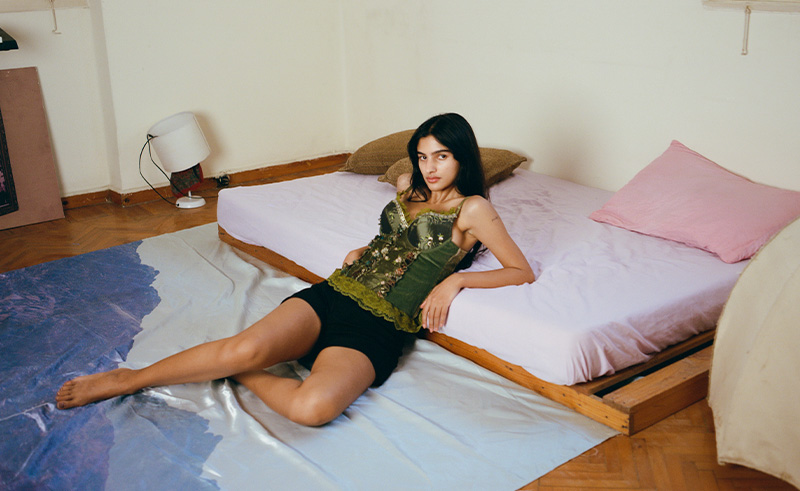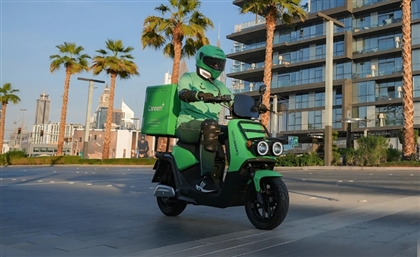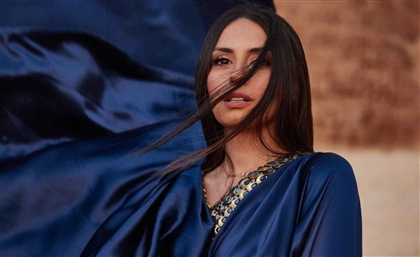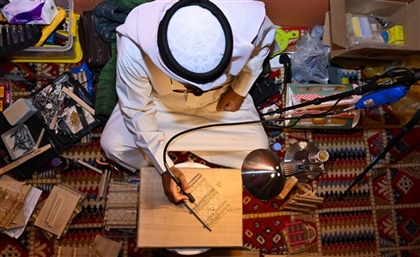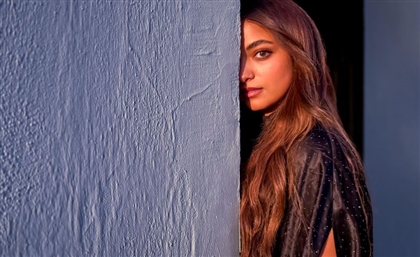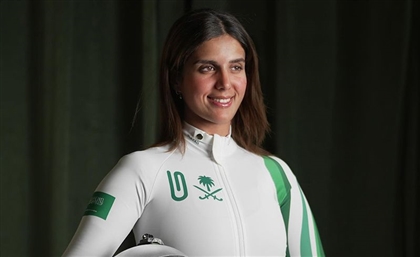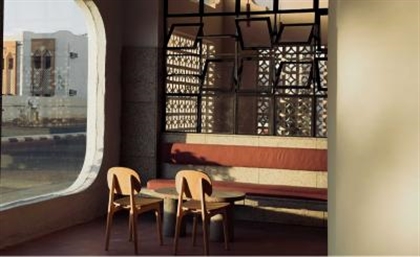UAE-Based Lebanese Fashion Photographer Sophia Khalifeh Bares It All
In this intimate interview, Sophia Khalifeh dismantles stereotypes about Arab women head-on, merging fashion, artistic expression and raw vulnerability.
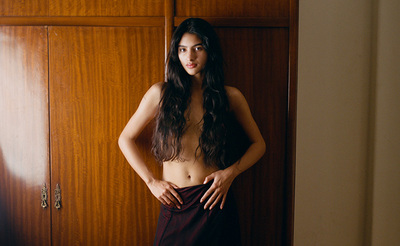
“I hadn’t felt like I made anything good since the end of last year. Cairo invigorated me and further pushed a narrative I’ve been contemplating about what needs to change in my life…”
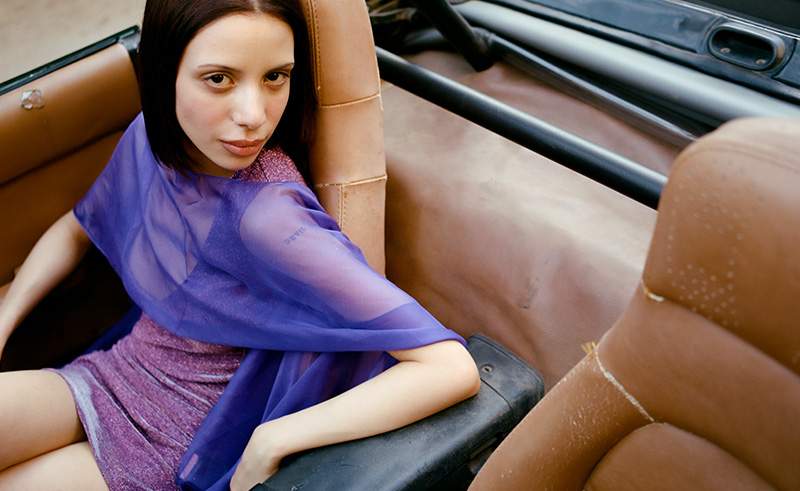
Sophia Khalifeh, the Lebanese fashion photographer whose eye for the ethereal has set her apart, now calls Dubai home. There, she immerses herself in a myriad of creative pursuits, each one a testament to her unwavering passion. Whether it's styling, art direction, or production, Khalifeh's work transcends conventional boundaries, elevating fashion brands and bringing the stories of MENA and SWANA women into focus.
Her portfolio reads like a who’s who of the fashion world: Milk Makeup, Coach, Fendi, Dior, Louis Vuitton, Adidas, Les Benjamins, Level Shoes, and Okhtein. And then there are the shoots she’s assisted, those with Gigi Hadid, Naomi Campbell, Anok Yai, Halima Aden, and Billie Eilish, alongside luminaries like photographers Steven Klein and Luigi and Iango, and the inimitable stylist Patti Wilson.
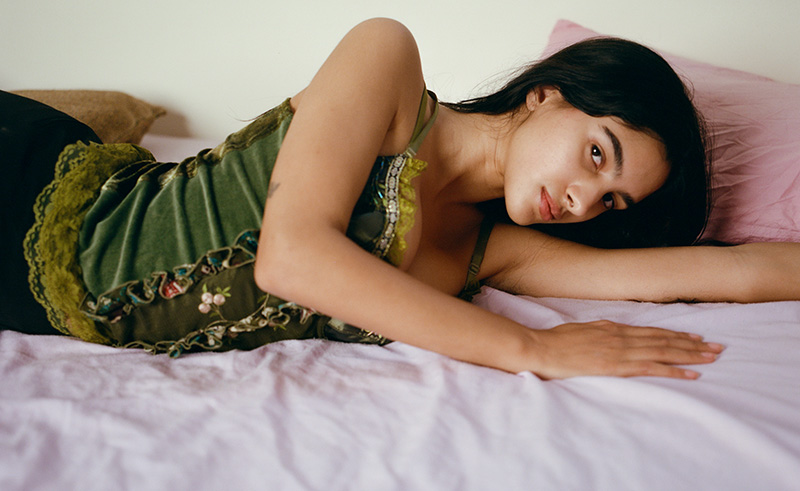
In this Scene Styled exclusive feature, we stepped into Khalifeh's world. We shadowed her on her latest shoot, watching as she orchestrated moments of magic, and later sat down for a conversation. Here, Khalifeh opens up about her journey, her inspirations, and the indelible mark she aims to leave on the fashion landscape.
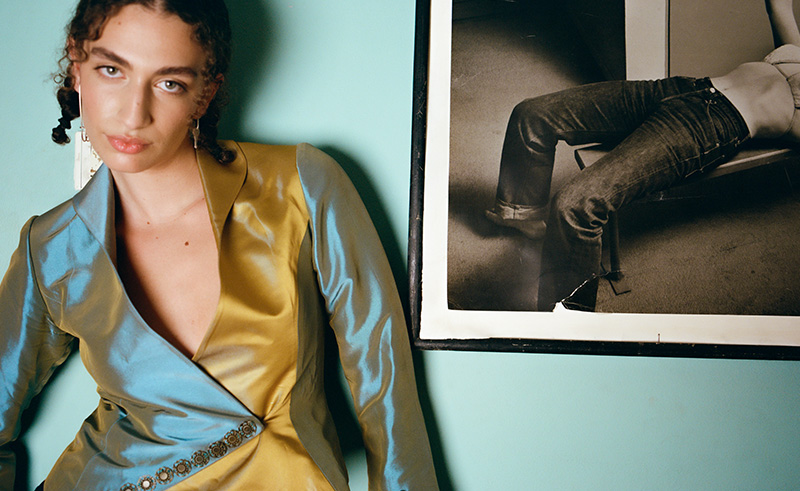
Can you tell us about your journey as a photographer and creative, and could you elaborate on the artistic signature you’ve cultivated?
Developing my style involved a lot of experimentation to understand what feels harmonious when I look at an image I've captured. It's an intuitive feeling - I know it when I experience a sense of peace or hear a mental 'yes'. My spiritual journey began around the same time as my photography career. I felt deeply connected to the earth, engaged in self-reflection, and embraced vulnerability. These experiences form the essence of what I aim to convey through my work.
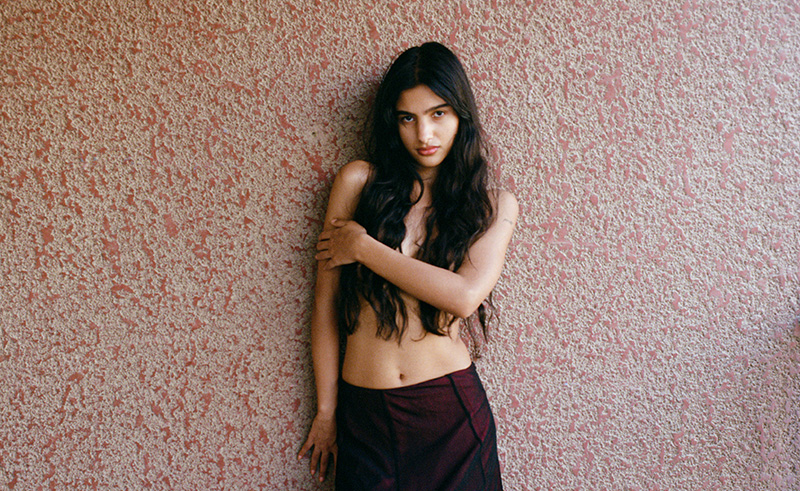
What initially inspired you to specialise in this field, and what subjects do you find most captivating to capture?
Fashion served as my gateway into photography. Perhaps it was my desire for control that initially propelled me behind the lens, but it was through experimenting with film photography that I truly began to fall in love with the medium. As for subjects, I tend to gravitate towards SWANA (Southwest Asian and North African) women, but ultimately, I'm drawn to anyone who evokes memories of my younger self or exudes an authentic energy that I admire or find compelling.
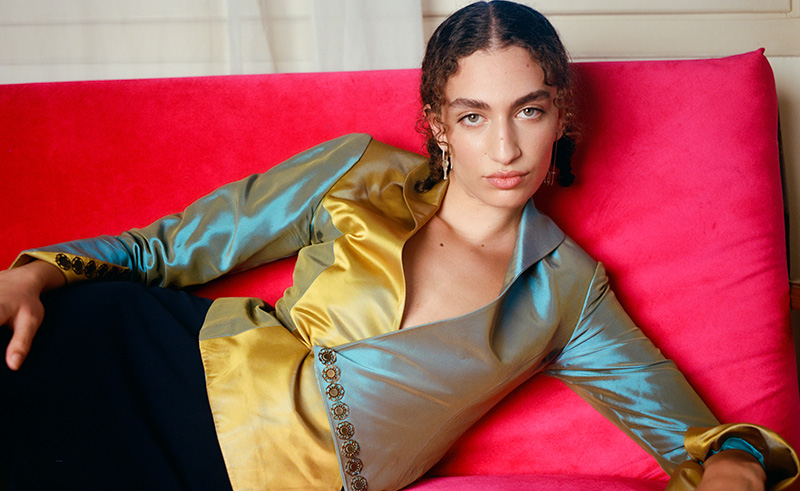
Your work frequently explores risqué concepts and embraces more minimalist forms. What attracts you to these themes, and how do you approach them with artistic integrity and sensitivity? Furthermore, how do you balance showcasing the beauty of the female form while ensuring it is not objectified or exploited?
I'm drawn to portraying women authentically, even if it means exploring themes and visuals that may not conform to conventional standards. Subconsciously, my aim is to challenge stereotypical perceptions of Arab women, moving away from orientalist or conservative portrayals towards depicting them as multifaceted individuals with their own desires and emotions. I believe that women possess a unique connection to their sensuality and femininity, independent of their relationships with men. Avoiding exploitation is about listening and acknowledging each individual's authenticity, without trying to alter or mould them. My goal is to enhance their beauty, not change it.
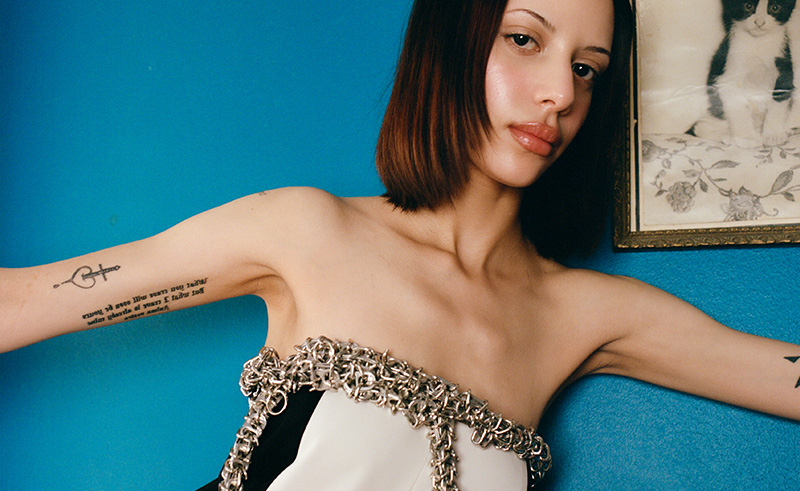
How do you ensure that your subjects feel comfortable and empowered during photoshoots, especially those involving more revealing or intimate poses, such as your recent one?
Before we even step onto the set, I make it a point to have a conversation with my subject. I ask them about their comfort level, what makes them feel empowered and confident, and I ensure to respect their boundaries. Having heard countless unsettling stories from models I've collaborated with, I'm committed to creating a safe and positive environment for everyone involved. I encourage natural movement and stretching during the shoot, focusing on authentic rather than posed actions. Sometimes, I even set the camera aside and join in, engaging in organic interactions with my subject. I find that working with individuals who are in tune with their bodies, even if they're initially reserved, yields the most authentic results. When shooting outdoors, I cherish moments of silence, where the only sounds are that of the wind and birds. While I may not always have the luxury of a small crew, I strive to maintain a friendly and supportive atmosphere, ensuring that my subject knows they have my full support, whether we're alone or in a crowded room.
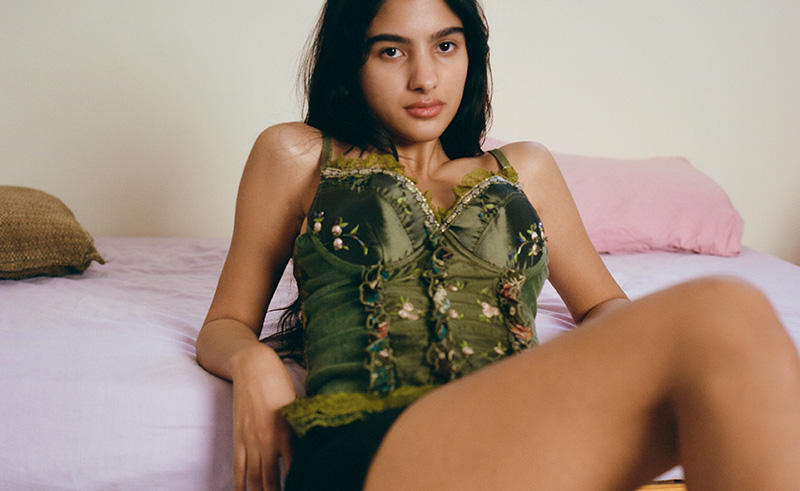
In your opinion, what is the significance and impact of portraying women in an artistic lens through photography? You’re also a multifaceted creative; producer, stylist, art director and more, can you also share through those mediums?
I think portraying women in an “artistic lens” is about deconstructing patriarchal and orientalist ideas and visuals of women, particularly in this region. It is women who know women best. In five to ten years, I hope that when someone encounters my fashion work, they'll perceive the softness and intimacy I strive to convey about SWANA women. I aim for my imagery to reflect a narrative shaped by us, not merely selected. It's crucial to cultivate a community of artists who depict the joys and truths of SWANA women, be it through fashion or documentary. While I can't speak for all women, I draw from my own lived experiences and the emotions I seek to convey through my photographs. Photography is a documentation and validation of our truths, and things like production, direction, and styling all play their part in that. People have been asking me to style more, which I do enjoy, but photography is my love.
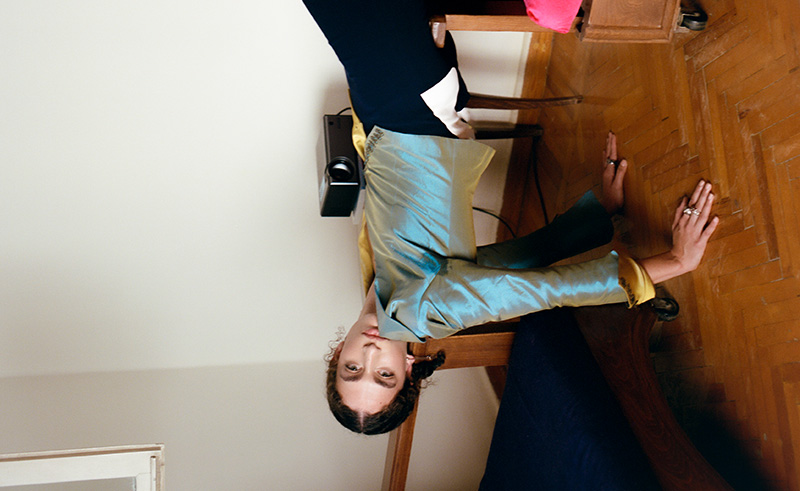
Can you expand on the difficulties you encounter as a female photographer who concentrates on portraying women's forms in a society that may hold conservative perspectives regarding nudity and femininity?
Some people don’t really understand what I do. They may find my lens sensational or unsexy-to be honest, I don’t mind. I’m not trying to “break the norms” or be “different”- I find that to be very cringe actually. I am just trying to exist. I portray what I know to be real; women like this exist, they live in all of us and are a part of our culture. I won’t deny the wonderful men who have acknowledged my work and who have supported me along my way because they exist, but as a woman working in a field mostly dominated by men, I have to constantly navigate the intentions of the men around me. My naivety starting out at 22 cost me. I've had work meetings with men who really just wanted to date me, or just wanted to enter the world and take the connections I've worked hard to build. Sometimes there are spaces that I won’t feel as welcome or understood in. What I learnt early is to stop aspiring for that validation and move towards people and create spaces that love and see me.
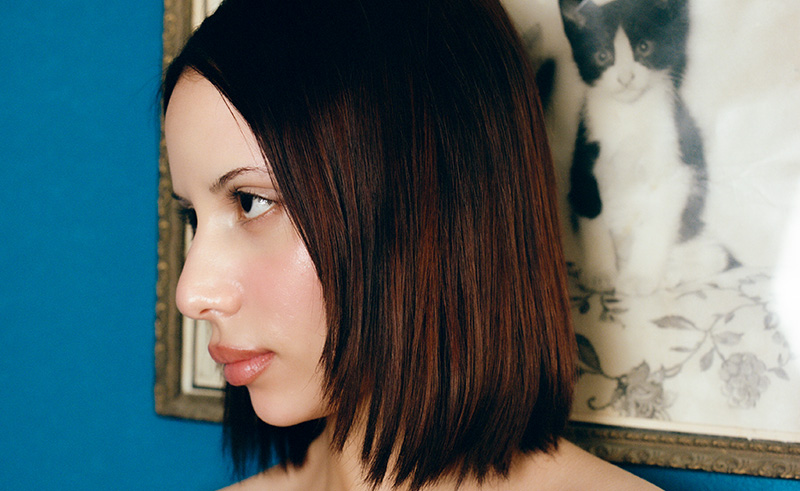
How do you strike a balance between artistic expression and commercial viability in your work? Do you lean towards brand shoots or personal passion projects?
Personally, it varies depending on the project. At times, you have to align with your client's vision, but I make an effort to share my artistic perspective and insights upfront. Fortunately, many of my clients are receptive to my input and trust my creative judgement within the project's guidelines. Those who engage me typically appreciate my style and the unique perspective I bring. Personal projects afford me the freedom to explore and express myself authentically, but there are brands that provide the resources to elevate the production and scale of my work. Each type of shoot holds its own significance for me.
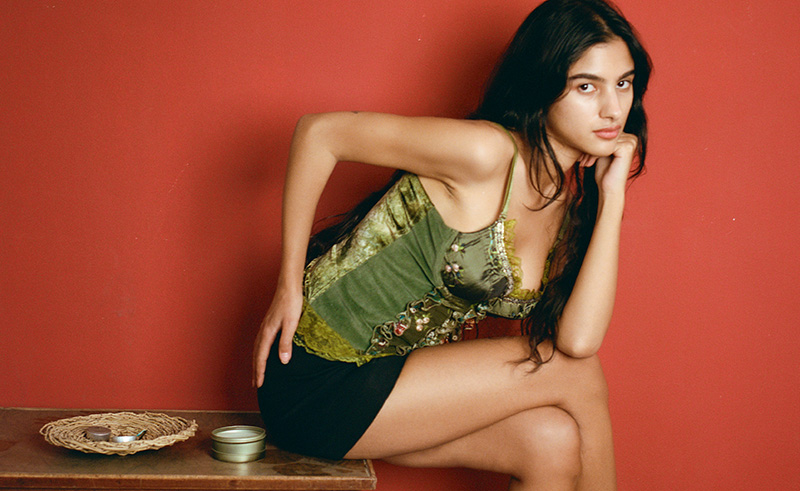
Are there any particular artists or photographers who have influenced your style and approach? If so, how have they inspired you?
Two photographers that immediately come to mind are Erika Kamano and Zoe Ghertner. Kamano possesses a distinct lens that sets her apart. I find her work to be incredibly imaginative yet imbued with a sensuality that is unmistakable. She effortlessly blends allure with eccentricity, creating a captivating aesthetic. Ghertner, on the other hand, approaches fashion photography with a refreshing unconventionality. Her work is characterised by its simplicity and intimacy, capturing the essence of nature in breathtaking detail. Her fashion imagery transcends the traditional boundaries, offering a raw and stripped-down perspective. Ghertner's work serves as a reminder that beauty often lies in the simplest of elements.
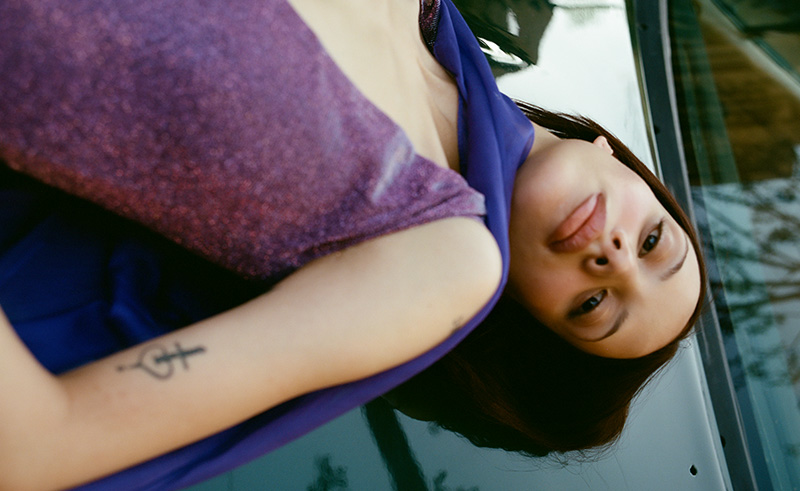
Are there any new themes or concepts that you're excited to explore in the future? Are there any exciting ventures or prospects on the horizon that you can share with us?
I feel you guys got me at such a transitional time. There are so many changes happening, and my priorities are shifting, which is definitely reflected in my work. I'm intrigued by the idea of exploring shooting more men and capturing them through a female perspective. 've been drawn to experimenting with Super8 film and creating videos that showcase Lebanon in a new light. Documenting women beyond the realm of fashion is something I'm considering for my next project. Lately, I've been focused on creating work that feels meaningful and inspires me. I'm embracing a bohemian energy, just going with the flow, travelling, and remaining open to creative opportunities.
